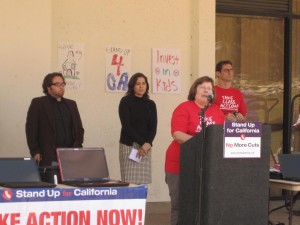Indian reservations were one of the forerunners of providing broad access gaming around the country based on the fact that their land is not considered part of the US. At the beginning, before the expansion of state operated casino licensing, it was a win-win situation since most tribes were able to skirt around state laws as they were not building casinos on federal land. The divide seemed clear until it hit the three P’s, over population, politics, and profit.
Take the California proposed casino near Route 99 as an example. Anyone who knows business could see the almost guaranteed short term profitability of having a casino on the busy 99 near Madera, California. Current estimates are in the millions daily from its exposure to one of the most traveled roads in America.
Now the opposition is finally gathering steam with current mentality in the local area shrouded in such statements as, “I’m not saying we can put gaming back in the bottle in California, although I would like to – it’s here to stay.”
Nevertheless, it is currently on the ballot for the November 4th primary is Proposition 48 which asks voters to approve the construction. The proposition was necessary because Governor Jerry Brown signed a compact with the North Fork tribe two years ago, allowing them to build the casino. So Stand Up for California wants to make this not happen, and I agree with them in this instance.
 What we do not need is more Indian owned gaming establishments that pad the pockets of corrupt politicians and that provide little in return for Californians. Luckily the technicality here that had to go through federal and state hoops before the governor could reach an agreement with the North Fork tribe. The casino is being built on Indian owned land, not strictly designed as part of an Indian reservation. North Fork is the only tribe in 25 years to successfully complete the process. It seems the anti-gambling groups thought the tribe’s attempts were in vain – until now.
What we do not need is more Indian owned gaming establishments that pad the pockets of corrupt politicians and that provide little in return for Californians. Luckily the technicality here that had to go through federal and state hoops before the governor could reach an agreement with the North Fork tribe. The casino is being built on Indian owned land, not strictly designed as part of an Indian reservation. North Fork is the only tribe in 25 years to successfully complete the process. It seems the anti-gambling groups thought the tribe’s attempts were in vain – until now.
But there is yet another group who wants their hands in preventing the casino from being built – the Chukchansi tribe and Table Mountain casinos which are nearby. Naturally, they do not want the competition with the argument is that the North Fork casino will not be viable because of its location and the small pool of potential players. Madera has a population of about 61,000 and limited disposable income. So the question then becomes, if construction of the casino is doomed to failure, why are so many people willing to gather more than 4 million dollars to stop its construction? That is the amount Stand Up for California and other anti-casino and tribal groups have collected to make their case to the public.
A fear factor exists here that goes beyond the spread and acceptance of casino gambling in the state. If the argument is that the construction of off-reservation casinos, and potentially the hotels and restaurants that would follow, will consume the landscape, we all know that just because a casino is built there is no guarantee of its survival. And given that North Fork is the only tribe to be granted such a license in two and a half decades of trying, it seems just trying to get approval for such ventures is a year’s long process most tribes would not give serious consideration to complete.
Beyond the competing tribal casinos, local restaurants and businesses fear that should the casino be allowed, they would lose business. Like the tribes, they are content with their profits without the competition. What is the most interesting angle to this competition issue is the anti-casino groups have decided to be tools for these local concerns. Anything to advance their agenda, even though they admit gambling is here to stay in California.
The political strategy being exercised by Stand Up for California and their cohorts is a simple one. Because the issue is primarily a local issue, putting the question on the November 4th ballot may gain them a win by apathy. Since the majority of Californians do accept the existence of casinos in the state, the hope is that many voters will simply choose not to vote on the issue. The collection of anti-casino voters, even though they may be few and far between, will actively vote and increase their chances of getting Proposition 48 approved.
You can’t fault their strategy. The pro forces of the North Fork casino have raised about $350,000 in their effort to oppose Proposition 48. Outspending your opponent to secure political victory has a long history in America. But throughout all this tug of war between the groups, the point that seems to have been missed is that there are people at the federal and state levels who believe the casino actually is a good thing for the area.






